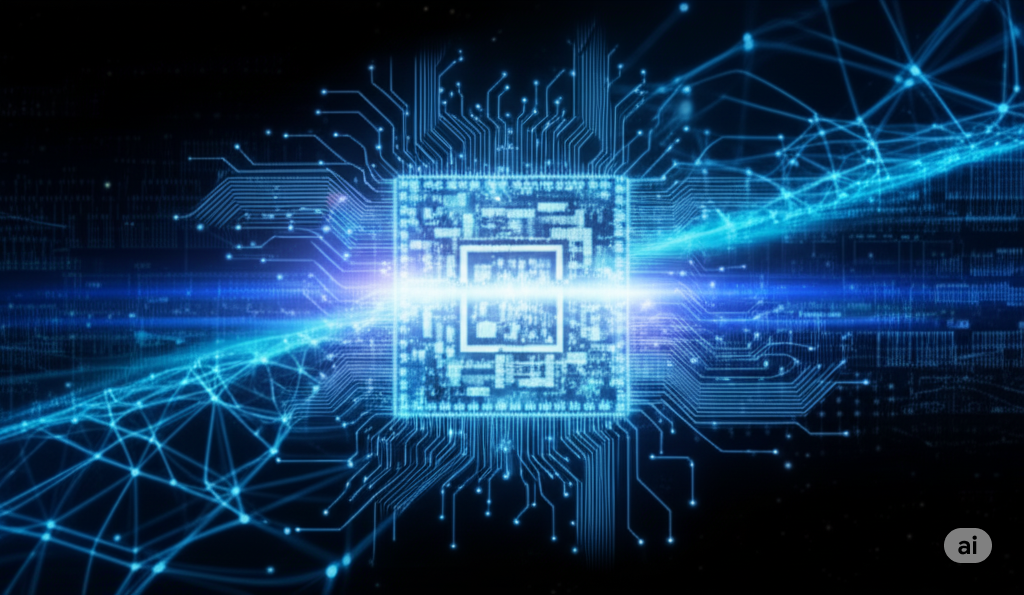Quantum Computing: Unlocking the Next Era of Technological Revolution
Introduction
Imagine a computer so powerful it could solve problems that would take today’s supercomputers billions of years. This isn’t science fiction anymore; it’s the promise of quantum computing. While still in its nascent stages, this revolutionary field is poised to redefine industries, from healthcare and finance to artificial intelligence and cybersecurity. Unlike the classical computers we use daily, quantum machines operate on the enigmatic principles of quantum mechanics, opening doors to computational capabilities previously thought impossible. This article will delve deep into what quantum computing is, how it harnesses the bizarre rules of the quantum world, its breathtaking potential applications, the formidable challenges it faces, and what its future might hold.
Understanding the Quantum Leap: Beyond Bits to Qubits
To grasp quantum computing, we first need to understand how it fundamentally differs from classical computing. Our everyday computers process information using bits, which can represent either a 0 or a 1. This binary system forms the foundation of all digital operations.
The Quantum Advantage: Superposition and Entanglement
Quantum computers, however, utilize qubits (quantum bits). Qubits are the cornerstone of quantum power, capable of existing in multiple states simultaneously due to two peculiar quantum phenomena:
-
Superposition: Imagine a spinning coin that is both heads and tails at the same time until it lands. Similarly, a qubit can be 0, 1, or a combination of both simultaneously. This ability to exist in a “superposition” of states allows a quantum computer to process vast amounts of information in parallel. If you have just a few qubits, the number of states they can represent grows exponentially. For instance, 50 qubits in superposition can represent states at once, a number larger than one quadrillion. This immense parallelism is what gives quantum computers their potential edge.
-
Entanglement: This is what Albert Einstein famously called “spooky action at a distance.” When qubits are entangled, their fates become intertwined, regardless of the physical distance between them. If you measure the state of one entangled qubit, you instantly know the state of the other(s). This interconnectedness allows quantum computers to perform incredibly complex correlations and computations that are impossible for classical machines, enabling them to solve problems by looking at many possibilities simultaneously.
These two quantum phenomena, superposition and entanglement, are what allow quantum computers to explore multiple computational paths at once, dramatically accelerating the search for solutions to complex problems.
How Do Quantum Computers Actually Work?
Building and operating a quantum computer is an engineering marvel. Unlike classical silicon-based chips, quantum computers require extremely precise and stable environments to maintain the delicate quantum states of qubits.
Physical Implementations
Several technologies are being explored to create stable qubits:
- Superconducting Qubits: These are tiny circuits chilled to temperatures near absolute zero (colder than outer space). At these temperatures, materials become superconductors, allowing electrons to flow without resistance and exhibit quantum properties. IBM and Google are major players in this approach.
- Trapped Ions: Individual atoms (ions) are suspended in a vacuum using electromagnetic fields. Lasers are then used to manipulate their quantum states. Companies like IonQ are focused on this method.
- Topological Qubits: A more theoretical approach, this involves creating “quasiparticles” that are inherently robust against environmental noise, making them more stable. Microsoft is investing heavily in this area.
- Photonic Qubits: Using photons (particles of light) as qubits. This method is promising for quantum communication and networking.
Regardless of the physical implementation, the core challenge is maintaining coherence—the ability of qubits to remain in their superposition and entanglement states without being disturbed by the environment. Even the slightest vibration or electromagnetic interference can cause a qubit to “decohere,” losing its quantum properties and introducing errors. This is why quantum computers often operate in specialized, super-cooled environments.
Quantum Algorithms
Just like classical computers need software (algorithms) to run, quantum computers need quantum algorithms designed to leverage their unique properties. Some of the most famous algorithms include:
- Shor’s Algorithm: This algorithm can efficiently factor large numbers into their prime factors. This is a monumental threat to current encryption methods, as many of them (like RSA) rely on the difficulty of factoring large numbers.
- Grover’s Algorithm: This algorithm can search an unsorted database much faster than any classical algorithm, offering a quadratic speedup.
These algorithms demonstrate the potential for quantum computers to achieve exponential or polynomial speedups over classical computers for specific types of problems.
Revolutionary Applications: Where Quantum Computing Will Reshape Our World
The true power of quantum computing lies in its ability to tackle problems currently intractable for even the most powerful classical supercomputers. Its applications span across numerous high-stakes sectors.
1. Cybersecurity: A Double-Edged Sword (Your Domain!)
As a cybersecurity expert, this is where quantum computing gets fascinating, and a little terrifying. The very algorithms that secure our digital world today are vulnerable to quantum attacks. Shor’s Algorithm, for instance, could break widely used public-key cryptography (like RSA and ECC) that secures everything from online banking to classified communications. This is a significant concern for national security and global financial systems.
However, quantum computing also offers a solution: Quantum-Resistant Cryptography (Post-Quantum Cryptography – PQC). This new generation of cryptographic algorithms is designed to be secure even against quantum attacks. Furthermore, Quantum Key Distribution (QKD) utilizes quantum mechanics to create unhackable communication channels, offering truly secure ways to exchange cryptographic keys. So, while quantum computing poses a threat, it also holds the key to building the next generation of unbreakable security.
2. Drug Discovery and Materials Science
Quantum computers are uniquely suited to simulate molecular interactions with unprecedented accuracy. This capability will revolutionize:
- Drug Discovery: Developing new drugs is a long, expensive, and often unpredictable process. Quantum computers can model how drugs interact with proteins, speeding up the identification of effective compounds and reducing the need for costly trial-and-error experimentation. This could lead to breakthroughs in treating diseases like cancer, Alzheimer’s, and even new pandemics.
- Materials Science: Designing new materials with specific properties (e.g., super-efficient solar cells, ultra-light alloys for aerospace, or even superconductors at room temperature) requires understanding complex quantum interactions at an atomic level. Quantum computers can simulate these interactions, accelerating the discovery and development of revolutionary materials.
3. Artificial Intelligence and Machine Learning
The future of AI is deeply intertwined with quantum computing. Quantum Machine Learning (QML) could provide:
- Faster Training for AI Models: Quantum algorithms could significantly speed up the training of complex machine learning models, leading to more powerful and efficient AI.
- Solving Complex Optimization Problems: Many AI applications, from optimizing logistics to designing neural networks, involve solving complex optimization problems. Quantum computers can find optimal solutions much faster.
- Enhanced Pattern Recognition: Quantum algorithms might be better at identifying subtle patterns in vast datasets, improving facial recognition, natural language processing, and medical diagnostics.
4. Financial Modeling and Optimization
The financial sector deals with immense amounts of data and complex calculations. Quantum computing could offer:
- Improved Portfolio Optimization: Financial institutions can use quantum algorithms to optimize investment portfolios, minimizing risk and maximizing returns by considering many variables simultaneously.
- Fraud Detection: Quantum algorithms could identify fraudulent patterns in transactions more effectively than classical methods.
- Risk Analysis: More accurate and faster risk assessments for complex financial instruments.
5. Logistics and Supply Chain Optimization
Optimizing routes, managing inventory, and streamlining complex supply chains are massive computational challenges. Quantum computers could solve these “traveling salesman” type problems, leading to:
- More Efficient Deliveries: Reducing fuel consumption and delivery times.
- Better Resource Allocation: Optimizing the distribution of goods and services globally.
The Road Ahead: Challenges and the Path to Reality
While the potential of quantum computing is immense, its development is fraught with significant challenges.
1. Qubit Stability and Error Rates
As mentioned, qubits are incredibly fragile. Maintaining their coherence for long enough to perform complex calculations is a major hurdle. Even slight environmental disturbances can cause errors. Building quantum computers with thousands or millions of stable, error-corrected qubits (known as fault-tolerant quantum computers) is still years, if not decades, away. Current “Noisy Intermediate-Scale Quantum” (NISQ) devices have limited qubits and high error rates, making them suitable for specific, less complex tasks.
2. Scalability
Scaling up the number of qubits while maintaining their quality and interconnectivity is a monumental engineering challenge. Adding more qubits often increases noise and interference, making it harder to control them.
3. Software and Algorithm Development
Developing efficient quantum algorithms and specialized quantum software is a new and complex field. There’s a shortage of quantum programmers and theoreticians who understand how to fully harness the power of these machines. Tools and programming languages for quantum computing are still evolving.
4. Cost and Infrastructure
Building and maintaining quantum computers is extraordinarily expensive, requiring specialized facilities, ultra-low temperatures, and advanced control systems. This limits access primarily to major corporations, governments, and research institutions.
5. The “Quantum Supremacy” Debate
While some companies have claimed “quantum supremacy” (performing a task that a classical supercomputer cannot), this has been met with debate. The achieved tasks are often very specific and not directly applicable to real-world problems yet. True quantum advantage for practical applications is still a future milestone.
The Future of Quantum Computing: A Glimpse into Tomorrow
Despite the challenges, the pace of innovation in quantum computing is accelerating.
- Increasing Qubit Counts: Researchers are continuously pushing the boundaries, increasing the number of stable qubits and improving their coherence times.
- Error Correction: Significant research is being dedicated to developing robust quantum error correction techniques to mitigate the effects of noise.
- Cloud Access: Companies like IBM and Google are providing cloud access to their quantum computers, allowing researchers and developers worldwide to experiment with these machines without needing to build their own. This democratizes access and accelerates algorithm development.
- Hybrid Quantum-Classical Approaches: The most practical immediate future might involve hybrid models, where quantum computers handle the computationally intensive parts of a problem, while classical computers manage the rest.
- Quantum Internet: Beyond computation, the principles of quantum mechanics could lead to a quantum internet, providing ultra-secure communication channels that are provably unhackable.
Conclusion
Quantum computing stands at the cusp of a technological revolution, promising to solve problems that are currently beyond our reach. From developing life-saving drugs and unbreakable encryption to supercharging artificial intelligence and optimizing global logistics, its potential impact is staggering. While significant scientific and engineering hurdles remain, the rapid advancements in qubit technology and algorithm development suggest that the “quantum age” is not just a distant dream but a tangible future. For engineers, scientists, and even the general public, understanding the basics of quantum computing is no longer optional; it’s essential to navigating the next frontier of human innovation. The journey has just begun, and the implications for our world are truly boundless.
© 2025 upcorehub.com. All rights reserved.


